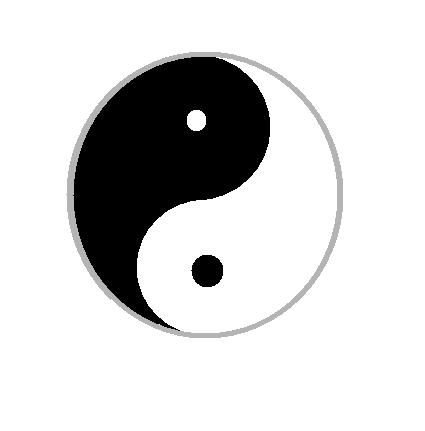Laozi's Dao De Jing 46-50 (老子道德經 46-50)
Author: Laozi (老子); translated by James Legge

To those who are good (to me), I am good; and to those who are not good (to me), I am also good;—and thus (all) get to be good. To those who are sincere (with me), I am sincere; and to those who are not sincere (with me), I am also sincere;—and thus (all) get to be sincere.
第四十六章
天下有道,卻走馬以糞。天下無道,戎馬生于郊。禍莫大于不知足﹔咎莫 大于欲得。故知足之足,常足矣。
Chapter 46
1. When the Tao prevails in the world, they send back their swift horses to (draw) the dung-carts. When the Tao is disregarded in the world, the war-horses breed in the border lands.
2. There is no guilt greater than to sanction ambition; no calamity greater than to be discontented with one's lot; no fault greater than the wish to be getting. Therefore the sufficiency of contentment is an enduring and unchanging sufficiency.
第四十七章
不出戶,知天下﹔不窺牖,見天道。其出彌遠,其知彌少。是以聖人不行 而知,不見而明,不為而成。
Chapter 47
1. Without going outside his door, one understands (all that takes place) under the sky; without looking out from his window, one sees the Tao of Heaven. The farther that one goes out (from himself), the less he knows.
2. Therefore the sages got their knowledge without travelling; gave their (right) names to things without seeing them; and accomplished their ends without any purpose of doing so.
第四十八章
為學日益,為道日損。損之又損,以至于無為。無為而無不為。取天下常 以無事,及其有事,不足以取天下。
Chapter 48
1. He who devotes himself to learning (seeks) from day to day to increase (his knowledge); he who devotes himself to the Tao (seeks) from day to day to diminish (his doing).
2. He diminishes it and again diminishes it, till he arrives at doing nothing (on purpose). Having arrived at this point of non-action, there is nothing which he does not do.
3. He who gets as his own all under heaven does so by giving himself no trouble (with that end). If one take trouble (with that end), he is not equal to getting as his own all under heaven.
第四十九章
聖人常無心,以百姓心為心。善者,吾善之﹔不善者,吾亦善之﹔德善。 信者,吾信之﹔不信者,吾亦信之﹔德信。聖人在天下,歙歙焉,為天下 渾其心,百姓皆注其耳目,聖人皆孩之。
Chapter 49
1. The sage has no invariable mind of his own; he makes the mind of the people his mind.
2. To those who are good (to me), I am good; and to those who are not good (to me), I am also good;—and thus (all) get to be good. To those who are sincere (with me), I am sincere; and to those who are not sincere (with me), I am also sincere;—and thus (all) get to be sincere.
3. The sage has in the world an appearance of indecision, and keeps his mind in a state of indifference to all. The people all keep their eyes and ears directed to him, and he deals with them all as his children.
第五十章
出生入死。生之徒十有三﹔死之徒十有三。人之生,動之于死地,亦十有 三。夫何故?以其生生之厚。蓋聞善攝生者,路行不遇兕虎,入軍不被甲 兵。兕無所投其角,虎無所措其爪,兵無所容其刃。夫何故?以其無死地 。
Chapter 50
1. Men come forth and live; they enter (again) and die.
2. Of every ten three are ministers of life (to themselves); and three are ministers of death.
3. There are also three in every ten whose aim is to live, but whose movements tend to the land (or place) of death. And for what reason? Because of their excessive endeavours to perpetuate life.
4. But I have heard that he who is skilful in managing the life entrusted to him for a time travels on the land without having to shun rhinoceros or tiger, and enters a host without having to avoid buff coat or sharp weapon. The rhinoceros finds no place in him into which to thrust its horn, nor the tiger a place in which to fix its claws, nor the weapon a place to admit its point. And for what reason? Because there is in him no place of death.
- Log in to post comments




Recent comments